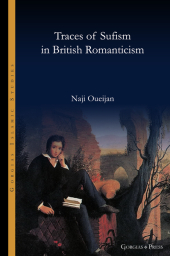New publication: Traces of Sufism in British Romanticism, by Professor Naji B. Oueijan
This work argues that there are traces of Sufism to be found in British Romanticism. Most scholars of Romanticism have overlooked the impact of Sufism on Romanticism in favour of Christian and neo-Platonic Mysticism, but this work fills in this gap by showing the magnitude of the influence of Sufism on the Romantics without negating the influence of other -isms. What elements of Sufism attracted the attention of the Romantics? And why were the Romantics attracted more to Sufism and Sufi poets than to Christian Mysticism and Mystic poets?
OVERVIEW
This work argues that there are traces of Sufism to be found in British Romanticism. It does not set out to prove that the six great British Romantic writers, William Blake, William Wordsworth, Samuel Coleridge, Lord Byron, Bessie Shelley, and John Keats were Sufi poets but to argue that they were influenced by Sufism because it suited their earnest purposes and goals, and because in some of their letters and works they made several references to Sufi poets and their poetry. With the exception of Bernard Blackstone and a few others, most scholars of Romanticism have overlooked the impact of Sufism on Romanticism in favour of Christian and neo-Platonic Mysticism. This work fills in this gap by showing the magnitude of the influence of Sufism on the Romantics without negating the influence of other -isms. What elements of Sufism attracted the attention of the Romantics? And why were the Romantics attracted more to Sufism and Sufi poets than to Christian Mysticism and Mystic poets? The introduction defines terms such as “Mysticism” and “Sufism” and discusses the basic differences between both in relation to Romanticism. Other chapters discusse traces of Sufism in Romantic poetry with emphasis laid on imagination as a medium for the perceptions of Self and Other. The work traces the Sufi Paths of Love, Light or Illumination, and Knowledge in Romantic poetry. It argues that the gnostic, inward, and visionary journeys of the poets of both literary movements—in search of the abodes of Beauty, Truth, and Knowledge—ascertain their kinship.

